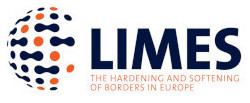This vacancy is now closed.
Cluster 2: Mobility of commodities and information
In this project, the focus will be on how coal miners’ languages and cultures in the former mining region north of Aachen in Germany (Low German/German speaking) and the Eastern Mine District with Heerlen as its centre in the Netherlands (Dutch/dialect speaking) are taken up in new contexts with new actors, how they are authenticated and legitimated during public events that are considered unique for the region. These two neighbouring areas are separated by a national border but share a common coal mining past and a common linguistic past. The area is still a multilingual one:
Questions that will be addressed in this project are:
How is the national border between Germany (Aachen district) and the Netherlands (south-eastern Limburg) softened or hardened as a linguistic and cultural border through revitalization practices of the linguistic and cultural coalmining past in both areas?
a. What language(s)/linguistic features are used in the revitalization practices and how are they reproduced in mediatizations (songs, poetry, linguistic landscapes and soundscapes, reminiscence practices, commodities, spoken and written texts in mining museums, parodies, carnival practices etc.)?
b. Do these practices confirm old stereotypes or do they create new ones?
The researcher will be based at Maastricht University, Faculty of Arts and Social Sciences, and undertake a 6-month secondment at the University of Duisburg-Essen, Institute for German Studies.
Supervision team:
Supervisor: Prof. dr. Leonie Cornips, Chair "Language culture in Limburg", Faculty of Arts and Social Sciences, Maastricht University
Co-supervisor: Louis van den Hengel, Assistant Professor of Gender Studies, Faculty of Arts and Social Sciences, Maastricht University
External supervisor: Prof. Dr. Evelyn Ziegler, Professorin für germanistische Linguistik mit dem Schwerpunkt Soziolinguistik, Institut für Germanistik, Universität Duisburg-Essen
Any inquiries about the position or the project may be addressed to the supervisor.
This vacancy has been re-opened until 30 September 2019. This does not affect the assessment procedure of applicants of the first application round, who will receive feed-back on their application on 7 October.
-
Requirements
You are invited to apply for a 4 year PhD position in the project “LIMES – the hardening and softening of borders”. This project has received funding from the European Union’s Horizon 2020 research and innovation programme under the Marie Skłodowska-Curie grant agreement No 847596.
Because the PhD candidates work in a larger research project, team work is essential. In addition to individual work on their dissertations, the PhD candidates will contribute to regular project team meetings and joint academic publications. The PhD candidates will receive extensive training, including regular supervision, training by the Graduate Schools of the relevant faculties, and the partner organisations, where they can benefit from a secondment.
Requirements
Candidates will be judged on the basis of the requirements outlined below. Candidates should make sure that their application letter demonstrates how they meet these requirements:
- Knowledge and interest on the topics covered by the relevant PhD project;
- Advanced skills in sociolinguistics, research design and relevant quantitative and/or qualitative analysis, as demonstrated in education and/or work so far;
- Strong analytical skills;
- Outstanding writing skills;
- Show an obvious interest in academic research, particularly qualitative research methods;
- Have the capability of autonomously conducting original research as well as working in a team;
- Fluency in oral and written English; willingness to invest in learning German and/or Dutch (and orienting towards the dialect) as used in the border area to be examined.
Application (eligibility criteria and application requirements)
Applicants submit an application package for one of the PhD projects. The full application must be submitted by email and in English, by means of the application form, and consists of:
- the application form containing: personal details (including language proficiencies), the LIMES project targeted, and a research proposal and a time plan which responds to the relevant project description (max. 1.000 words) (cf. template).
- Annex I: A letter of motivation stating the candidate’s qualifications and reasons for interest in the position.
- Annex II: Curriculum vitae, outlining relevant work experiences and research output (where applicable). Applicants who have taken a break in their career should indicate this in their application (and in their CV), so it can be taken into account during the selection process.
- Annex III: Ethics self-assessment, based on the standard ethical research principles and the ethical principles of H2020 (cf. template).
- Annex IV: Copy of Bachelor (BA) and (Research) Master (MA) degree and transcript (including GPA).
- Annex V: Proof of proficiency in English (for applicants who neither are native speakers of English nor followed an English taught BA/BSc and MA/MSc); see below for the expected level.
- Annex VI: One academic paper (e.g. course paper; (draft) thesis; academic publication).
- Annex VII: Contact information of two references (including e-mail; phone number, mailing address, and relationship to the applicant).
Following receipt of an application, the Programme Office (PO) carries out an eligibility check. In addition to the completeness of the application file, the PO also checks compliance with the Marie Skłodowska Curie Action (MSCA) requirements (1), minimum standards of academic performance (2), and language skills (3-4).
(1) Early-Stage Researchers (ESR) must on 30 September 2019 be in the first four years (full-time equivalent research experience) of their research careers and not yet have been awarded a doctoral degree.
Full-Time Equivalent Research Experience is measured from the date when a researcher obtained the degree entitling him or her to embark on a doctorate, either in the country in which the degree was obtained or in the country in which the researcher is recruited, even if a doctorate was never started or envisaged.
Mobility Rule: Researchers may not have resided or carried out their main activity (work, studies, etc.) in the Netherlands (country of employment) for more than 12 months in the three years immediately before 30 September 2019.
Time spent as part of a procedure for obtaining refugee status under the Geneva Convention[1], compulsory national service and/or short stays such as holidays are not taken into account.
(2) LIMES will only consider applicants who have reached an overall average Grade Point Average (GPA) of the completed Bachelor of at least 3.4 and/or completed their Master study with a GPA of at least 3.5 (MA).[2]
(3) For applicants who neither are native speakers of English nor followed an English taught BA/BSc and MA/MSc, the PO accepts certificates from:
- IELTS test: minimum score overall 7.0 and writing minimum score 6.5
- TOEFL test: overall, internet-based minimum score 100 and writing minimum score 25
- TOEFL test: overall, paper-based minimum score 600
- TOEFL test: overall, computer-based minimum score 250
- A Cambridge certificate: C or higher for the CAE (Certificate in Advanced English)
(4) Please indicate your fluency in Dutch and/or German and/or Limburgish.
In case of ineligibility, the PO notifies the applicant by e-mail within ten working days after the receipt of the application.
Maastricht University is committed to nurturing an inclusive culture and a welcoming atmosphere. This inclusiveness strategy has resulted in a very diverse representation of nationalities and cultures. We strongly believe that diversity (including, but not limited to ethnicity, gender, age, and (dis)ability) is to our advantage. Creating an inclusive working climate in which students and staff feel a valued member of the UM community is therefore a top strategic priority. UM values diversity within its community and encourages you to apply if you are qualified for this position.
The deadline for submitting your application is 30 September 2019.
Please send your application electronically to limes@maastrichtuniversity.nl.
Selection process
All applicants will be notified by mid-October at the latest as to whether or not they have been selected for an interview with the LIMES Cluster Committees. The interviews will take place in Maastricht between 4 November – 2 December 2019. Please see the application procedure on the website for more information.
What we offerWe offer a dynamic and challenging job in an internationally-oriented organisation where people receive an advanced education and scholars conduct exciting research. You will be part of an international network of top universities and renowned scholars within the field.
We offer a 4-year full-time appointment as PhD candidate in one of the research projects under the umbrella of LIMES.
The first year will be a probation period, after a positive assessment the position will be extended with another 3 years.
Remuneration will be according to standard salary levels for PhD students starting with a salary of € 2.325,- with a yearly growth to € 2.972,- gross a month in year 4 (based on a full-time appointment.)
Each year the standard salary is supplemented with a holiday allowance of 8% and an end-of-year bonus of 8.3%.
You have to be willing to move to (the vicinity of) Maastricht. You will be eligible for an allowance for moving costs. You may also be eligible for an allowance for alternative housing. Other secondary conditions include e.g. a pension scheme and partially paid parental leave.
You will be provided with shared office space and a PC.
Maastricht University’s Terms of Employment are laid down in the Collective Labour Agreement of Dutch Universities (CAO). Furthermore, local university provisions apply as well. For more information please see the website: www.maastrichtuniversity.nl/support/UM-employees.
Starting date: 1 December 2019 – mid-January 2020 (or as soon as possible thereafter).
Further information is available on the website:
- Selection process, application form and instructions
- Host institution, partners involved, employment conditions
- Set-up of the Programme, staff and contact points
- Training and secondment programme
- Information on the ethical and legal standards
- FAQs
[1] 1951 Refugee Convention and the 1967 Protocol.
[2] GPAs are represented on a 1-4 scale, with 4 being the maximum score. The minimum thresholds are in line with the requirements of the major Dutch PhD funding schemes in the SSH sector (Research Talent / PhD in the Humanities). NUFFIC is referred to for any translations of grades between countries.

